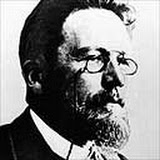[ advertising space : webmaster ]
text LINKS
My conclusion: of course, I prefer the tragic man of existentialism (especially, the Berdyaev's type); tragic a priori, by definition, by birth. Could his tragedy be comical? Dante said -- yes, Divine Comedy. Even the Christ tragic notion comes into play, because Christ is Jesus, a man. But we moved so much into the oriental frame of mind since then, no more gods or humans, non dramatic (or even conflicting environment)... No suprises that the East has the theatrical traditions, but not much dramas.
Movies is the kingdom of Zen (from the level of Ethics, Aesthetics is different), dramatic in essense (message, not in forms?)...

2007

Summary
Merriam-Webster: movies of the drama genre are a composition in verse or prose intended to portray life or character or to tell a story usually involving conflicts and emotions through action and dialogue.Questions
Drama :Samuel Beckett's play "Waiting For Godot" reflects which theatrical style?
A. absurdism
B. idealism
C. surrealism
D. naturalism
Notes

Man: Oh, hush, Liza! How can you talk about being like a book, when it makes even me, an outsider, feel sick? Though I don't look at it as an outsider, for, indeed, it touches me to the heart… Is it possible, that you do not feel sick at being here yourself? Evidently habit does wonders! Can you seriously think that you will never grow old, that you will always be good-looking, and that they will keep you here for ever and ever? I say nothing of the loathsomeness of the life here… (Pause) Though you are young now, attractive, nice, with soul and feeling, yet you know as soon as I came to myself just now I felt at once sick at being here with you! One can only come here when one is drunk. But if you were anywhere else, living as good people live, I should perhaps be more than attracted by you, should fall in love with you, should be glad of a look from you, let alone a word; I should hang about your door, should go down on my knees to you, should look upon you as my betrothed and think it an honour to be allowed to. I should not dare to have an impure thought about you. But here, you see, I know that I have only to whistle and you have to come with me whether you like it or not. I don't consult your wishes, but you mine. The lowest labourer hires himself as a workman, but he doesn't make a slave of himself altogether; besides, he knows that he will be free again presently. But when are you free? Only think what you are giving up here? What is it you are making a slave of? It is your soul, together with your body; you are selling your soul which you have no right to dispose of! You give your love to be outraged by every drunkard! Love! But that's everything, you know, it's a priceless diamond, it's a maiden's treasure, love... why, a man would be ready to give his soul, to face death to gain that love. But how much is your love worth now? You are sold, all of you, body and soul, and there is no need to strive for love when you can have everything without love. And you know there is no greater insult to a girl than that, do you understand? To be sure, I have heard that they comfort you, poor fools, they let you have lovers of your own here. But you know that's simply a farce, that's simply a sham, it's just laughing at you, and you are taken in by it! Why, do you suppose he really loves you, that lover of yours? I don't believe it. How can he love you when he knows you may be called away from him any minute? He would be a low fellow if he did! Will he have a grain of respect for you? What have you in common with him? He laughs at you and robs you. That is all his love amounts to! You are lucky if he does not beat you. Very likely he does beat you, too. Ask him, if you have got one, whether he will marry you. He will laugh in your face, if he doesn't spit in it or give you a blow-though maybe he is not worth a bad halfpenny himself. And for what have you ruined your life, if you come to think of it? For the coffee they give you to drink and the plentiful meals? But with what object are they feeding you up? An honest girl couldn't swallow the food, for she would know what she was being fed for. You are in debt here, and, of course, you will always be in debt, and you will go on in debt to the end, till the visitors here begin to scorn you. And that will soon happen, don't rely upon your youth... all that flies by express train here, you know. You will be kicked out. And not simply kicked out; long before that she'll begin nagging at you, scolding you, abusing you, as though you had not sacrificed your health for her, had not thrown away your youth and your soul for her benefit, but as though you had ruined her, beggared her, robbed her. And don't expect anyone to take your part: the others, your companions, will attack you, too, win her favor, for all are in slavery here, and have lost all conscience and pity here long ago. They have become utterly vile, and nothing on earth is viler, more loathsome, and more insulting than their abuse. And you are laying down everything here, unconditionally, youth and health and beauty and hope, and at twenty-two you will look like a woman of five-and-thirty, and you will be lucky if you are not diseased, pray to God for that! No doubt you are thinking now that you have a gay time and no work to do! Yet there is no work harder or more dreadful in the world or ever has been. One would think that the heart alone would be worn out with tears. And you won't dare to say a word, not half a word when they drive you away from here; you will go away as though you were to blame. You will change to another house, then to a third, then somewhere else, till you come down at last to the Haymarket. There you will be beaten at every turn; that is good manners there, the visitors don't know how to be friendly without beating you. You don't believe that it is so hateful there? Go and look for yourself some time, you can see with your own eyes. Once, one New Year's Day, I saw a woman at a door. They had turned her out as a joke, to give her a taste of the frost because she had been crying so much, and they shut the door behind her. At nine o'clock in the morning she was already quite drunk, disheveled, half-naked, covered with bruises, her face was powdered, but she had a black-eye, blood was trickling from her nose and her teeth; some cabman had just given her a drubbing. She was sitting on the stone steps, a salt fish of some sort was in her hand; she was crying, wailing something about her luck and beating with the fish on the steps, and cabmen and drunken soldiers were crowding in the doorway taunting her. You don't believe that you will ever be like that?... [from Dostoyevsky's Notes from the Underground]


The Possessed 2003

|
|
| acting2 |
| 2007 class |
Read Chekhov Pages : chekhov.vtheatre.net
 |
| From theatre |
Modern Drama and Postmodern















